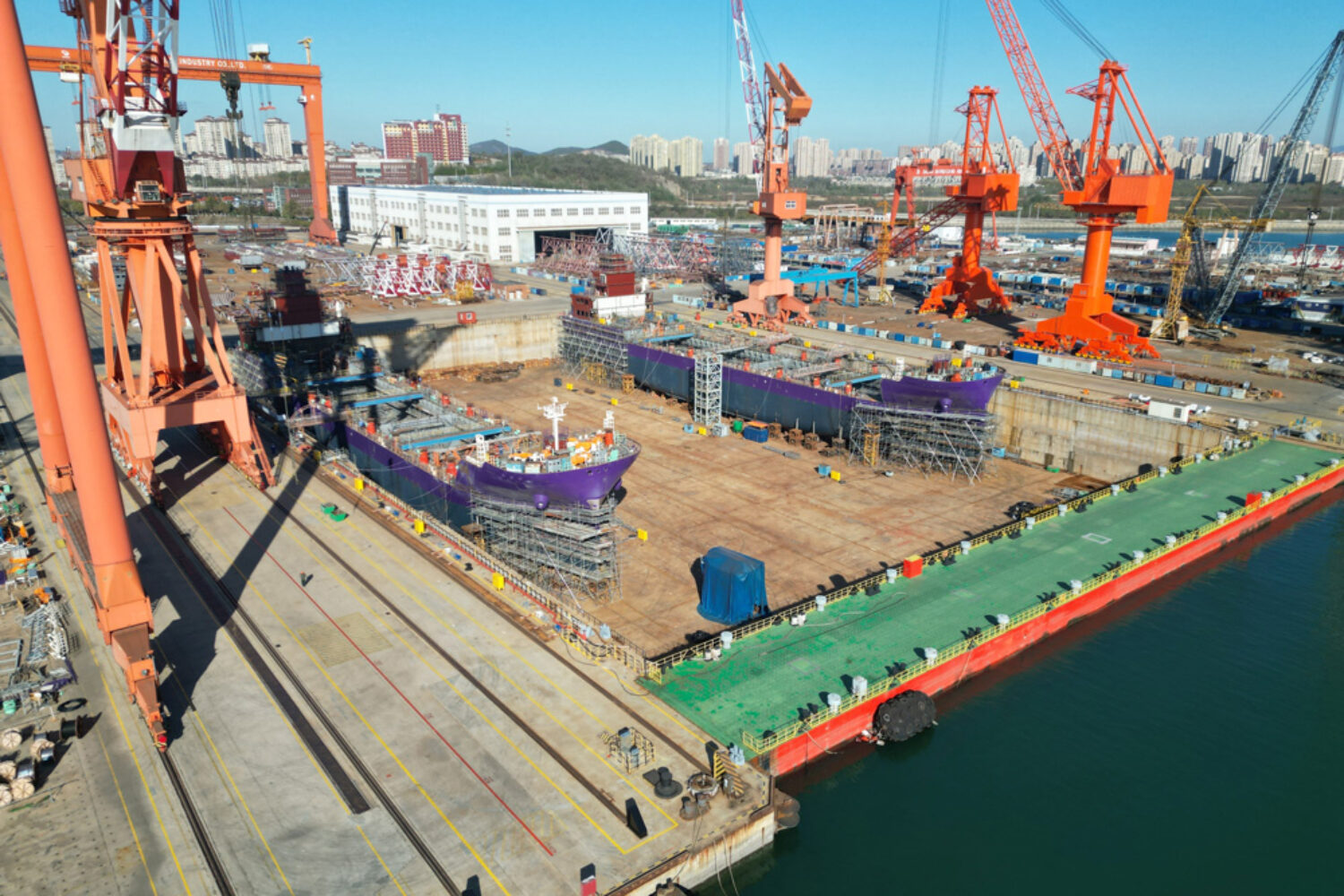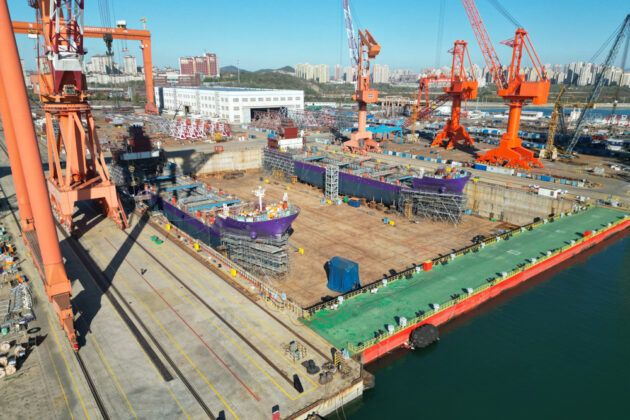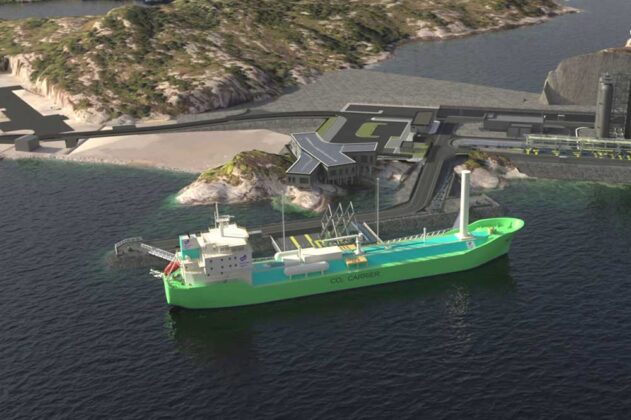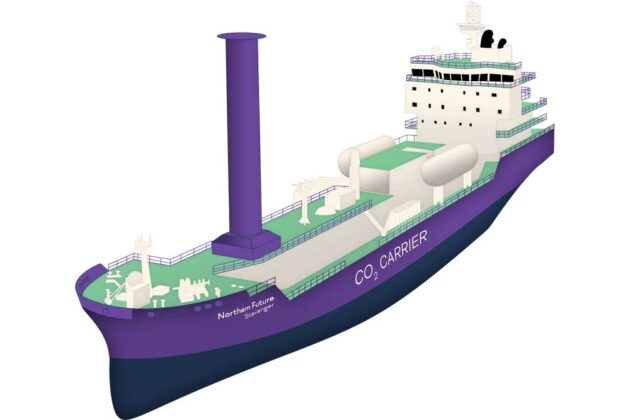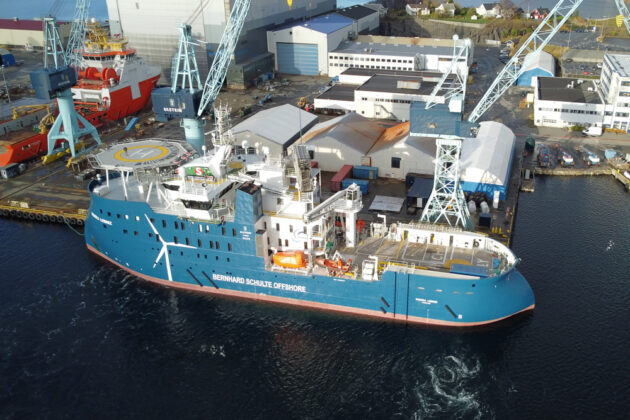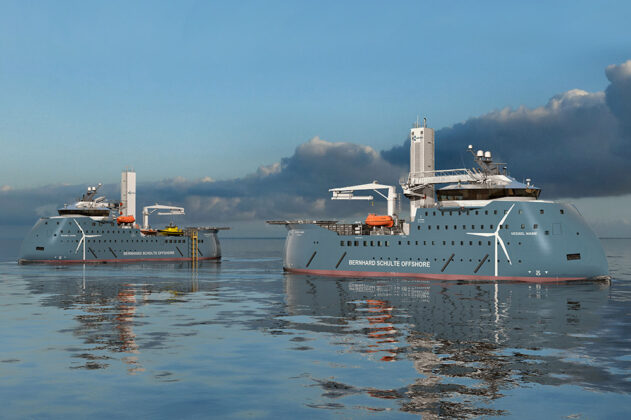The German shipping company Bernhard Schulte is expanding its fleet portfolio and ordering its first CO2 tanker.
Schulte has ordered the newbuilding from Dalian Shipbuilding Offshore (DSOC), it was announced today[ds_preview].
Delivery is scheduled for 2026. The newbuilding is tied to a long-term time charter contract with the Northern Lights project and is intended to support the development of the world’s first cross-border CO2 transportation and storage infrastructure.
It is the first vessel of this type for the Bernhard Schulte fleet, which so far consists of 80 “wholly or partly owned” vessels, including container and offshore vessels, bulk carriers, tankers and gas carriers. It is also the fourth CO2 tanker for Northern Lights. The joint venture, owned by Shell, TotalEnergies and Equinor, has already ordered three vessels, two of which are under construction at DSOC and another was ordered in September this year.
“Exciting step” for Bernhard Schulte
“The order for this vessel is an exciting step in the expansion of our fleet portfolio in an innovative future tanker segment. We look forward to becoming part of Northern Lights’ industry-leading project,” said Ian Beveridge, CEO of Bernhard Schulte. The Schulte Group has long-standing relationships with Chinese shipyards, which form a “strong foundation for this outstanding project,” he added.
All four ships are identical in construction and have a loading capacity of 7,500 m³. The purpose-built vessels are the first of their kind for the transportation of liquefied CO2 and will safely transport the CO2 from Northern Lights’ customers across Northwest Europe to the receiving terminal in Øygarden, Norway, before it is permanently geologically stored there.
Børre Jacobsen, Managing Director of Northern Lights, called the latest new construction order “another important milestone”. He is pleased that Bernhard Schulte is now entering the business, “because strong partnerships are needed to be successful. We firmly believe in the three-way collaboration between Northern Lights JV, DSOC and Bernhard Schulte.”
The main fuel for the ships will be LNG. In combination with other technologies such as wind-assisted rotor sails and air lubrication, the vessels are expected to have a carbon footprint around 34% lower than conventionally powered vessels.
Ship details
- Capacity: 7,500 m³ of liquid CO2
- Two cylindrical cargo tanks
- Length: 130 m
- Transport conditions: maximum pressure of 19 bar(g) and minimum temperature of -35°C
- 34% lower CO2 footprint than ships using conventional fuel
- LNG dual fuel, wind-assisted rotor sail and air lubrication




